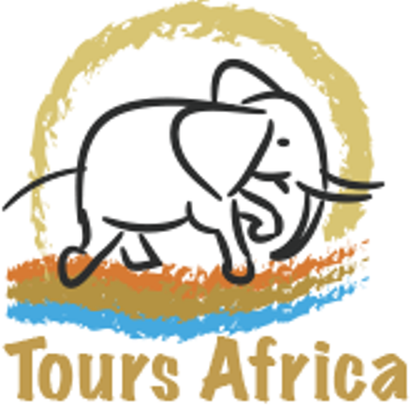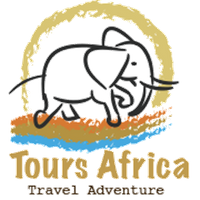
All The Travel Information You Need To Know About Botswana
Highlights of Botswana, as well as all the information every traveler should know
Botswana is a landlocked country in the region of Southern Africa. It is bordered by South Africa to the south and southeast, Namibia to the west and north, and Zimbabwe to the northeast.
Botswana is the world's 48th-largest country, similar in size to Madagascar or France. The country is predominantly flat, with 70% of its land covered by the Kalahari Desert. Botswana boasts one of the world's largest inland deltas, the Okavango Delta, not to mention the Limpopo River Basin, which is one of the major landforms of all of Southern Africa, lying partly in Botswana.
Formerly one of the poorest countries in the world, Botswana has now developed into one of the fastest-economies in the world through mining, cattle, and what we love most - tourism!
Botswana's Wildlife
Botswana has more than 2500 species of plants and 650 species of trees. The vegetation and wild fruits are crucial to rural populations as they are the main source of food, fuel and medicine.
There are 3 national parks, namely Chobe National Park, Nxai Pan and Makgadikgadi National Park and the Kgalagadi Transfrontier Park. Additionally, there are 7 game reserves - the Central Kalahari Game Reserve, Gaborone Game Reserve, Khutse Game Reserve, Mannyelanong Game Reserve, Maun Game Reserve and Moremi Game Reserve.
Botswana is a popular attraction for safari tours. On most safaris, you have the opportunity of seeing the famous Big Five (lion, rhino, elephant, leopard and buffalo) amongst an array of other mammals, birds and vegetation.
Botswana's Culture
Botswana holds a rich history which largely shapes their culture of today. Citizens of Botswana are known as 'Batswana', with ‘Ba’ meaning ‘the people of’.
The people strongly believe in a peaceful, democratic way of life, with traditional towns having meeting places where everybody has a chance to have their say. Unanimous decisions are then reached.
Due to Botswana's previous British colonization, English is widely spoken alongside Setswana. There are also a number of additional languages.
Some Khoisan speakers living in the Kalahari, referred to as the Bushmen or San, are fighting to preserve their original hunter-gatherer way of life.
Botswana's beliefs are mixed between their native worships as well as Christianity which was introduced by missioners in the 19th century. Their native beliefs include worshiping a higher power as well as spirits of their ancestors.
Each tribe in Botswana holds their own unique culture pertaining to arts, myths, ceremonies, beliefs and values. While western influences have reached various parts of the country, some areas are still well preserved.
Botswana's Currency
The pula is the currency of Botswana. Pula means "rain" in Setswana. Due to the fact that rain is very scarce in Botswana, it is seen as valuable and a blessing.
The pula is one of the strongest currencies on the African continent and the country is rated the least corrupt country in Africa.
Major credit cards are accepted widely and foreign currencies are accepted at most large hotels and lodges.
Getting To Botswana
There are few direct flights to Botswana from outside Southern Africa. Most tourists will have a stop-over in OR Tambo International Airport, Johannesburg, South Africa. Botswana's main airport is Sir Seretse Khama International Airport (GBE) located 11km/7miles north of Gaborone, the capital city.
For tourists, however, it is more common to fly into Maun Airport (MUB) and Kasana Airport (BBK) as they are closer to the northern Parks.
Passport, Visa And Other Entry Requirements For Botswana
Entry requirements to Botswana can change, so please contact your local Botswana embassy to double check the below-mentioned points.
A passport is required for all foreign visitors and has to be valid for at least six months. Most nationalities do not require a visa and will get a 30-days entry permit on arrival but all foreign visitors will need to carry a return ticket.
Children under 18 years of age must have a certified copy of their full, unabridged birth certificate as well as a valid passport. If a child is traveling with only one parent, or no parents, the child must have an affidavit from the missing parent(s) which gives their consent for the child to travel.
The Best Time To Visit Botswana
Deciding when to visit Botswana is dependent on where exactly you'd like to visit and what you'd like to do.
Safari tours are best suited to Botswana's dry winter months between May and October when animal sightings are common as they frequent the water sources. Animal sightings are high, there's hardly any rain and the risk of malaria is low.
Botswana's 3 Kalahari parks are arguably at their best in early summer (December) as many antelope give birth during this time which means more predators.
Botswana's Malaria Risk & Vaccinations
The following information is general guidelines and should not be used to substitute your consultation with a travel doctor.
Central and Northern Botswana carry a high risk of malaria, while the rest of the country carries low risk. The highest time for transition is in the rainy season from November to June.
When traveling in Botswana, you should avoid mosquito bites to prevent malaria. This entails sleeping with mosquito nets, wearing mosquito repellent and trying to plan your trip during the dry season.
You may need to take prescription medicine before, during, and after your trip to prevent malaria, depending on where you are going, when you are traveling, and if you are spending a lot of time outdoors or sleeping outside. Consult your doctor about how to can prevent malaria while traveling to Botswana.
Botswana's Climate
Botswana's climate is semi-arid which means they experience very little annual rainfall, usually from 10 to 20 inches (25 to 50 cm). For most of the year it is hot and dry, while they have a rainy summer season.
The summer season begins in November and ends in March, usually bringing very high temperatures (44°C on occasions) and inconsistent rains. The winter season begins in May and ends in August. Winter is a dry season with hardly any rainfall and sunny days but night temperatures can drop below freezing point, especially in the southwest.
Driving In Botswana
Driving in Botswana is fairly safe, although travelers should still abide by general safety guidelines. Driving is on the left side of the road in Botswana (sorry, Americans) and most roads are in good condition, while on some roads you will come across large potholes.
If you're planning on driving through the parks, it is recommended that you hire a 4x4 vehicle as you will have to drive on dirt roads. If you're driving to more remote areas, please be aware that petrol (gas) stations are not common, while coming across wild animals (ostriches, giraffe, elephants, warthogs, etc.) can be normal so it's advised you drive extra carefully during night time.
If you plan on touring Botswana by car, make sure you always have a charged battery at hand and extra water and food. All visitors intending to drive are required to obtain an international drivers permit.
Botswana's Electric Plug Points/Outlets
Electrical sockets (outlets) in Botswana are the "Type M " South African SABS1661 ("Large" 15 amp BS-546) sockets. If your appliances' plugs don't match this, you will need a travel plug adapter.
Electrical sockets (outlets) in Botswana usually supply electricity at between 220 and 240 volts AC. If you're plugging in an appliance that was built for 220-240 volt electrical input, or an appliance that is compatible with multiple voltages, then an adapter is all you need.
Keep in mind that travel plug adapters do not change the voltage. You will have to check whether your appliances are compatible with Botswana's voltage. The electrical input specifications will appear on a label on the appliance itself, or on its charger or AC adapter if it uses one. Look for the word "input." If you can't find the specification, you could check the back of the manual as a last resort.
Tipping In Botswana
Tipping in Botswana is voluntary and should depend on the quality of service received. It's encouraged for travelers to tip their safari guides, waiters/waitresses, drivers and cleaners at the end of their stay or visit. A general rule of thumb is 10% tip for restaurant waiters and about $5 USD per guest per day at safari lodges. However, it's best to tip the amount that you think is fair.
Dress Code In Botswana
Botswana's dress code is generally conservative. Due to the climate, you should try pack cotton clothing that is quite light and loose.
Men are advised to wear long trousers unless at a safari camp. Going into town wearing shorts may cost you a few under-the-breath remarks. Women are advised not to wear items that reveal anything higher than their knees.
If you plan on doing any walking, lightweight walking boots are recommended, and sandals for down time.
HIV/Aids
In the year 2015, there were 350 000 people living with HIV and 3 200 Aids-related deaths. Botswana has the 3rd highest HIV population in the world. It was the first country in the region to provide universal free antiretroviral treatment to people living with HIV, paving a path for many other countries in the region to follow.
Now let's all be honest. Holiday flings are alluring and hardly uncommon. Please make sure to protect your safety by using condoms in all instances. You alone are responsible for your health and safety.
Dining In Botswana
Camps, hotels and lodges that cater for overseas visitors will serve a very international menu selection. The quality of food served is high and delicious! If you are driving yourself around and plan to cook your own meals, it's best to get most of your ingredients in Maun or Kasane. Both have large supermarkets which are well stocked.
Botswana has two distinct beer types: clear and opaque. The clear beers are similar to European lagers and are always served chilled. The locals usually prefer to drink the opaque beers, however finding them as a tourist may be tricky as the bars and restaurants don't stock the opaque beer.
Always ask your tour guide or property manager if the water is safe to drink. You will usually find that the water is clean and safe, although some water may taste slightly salty or sweet, nevertheless safe.
Attractions In Botswana
- Okavango Delta (Maun)
- Chobe National Park (Kasane)
- Moremi Wildlife Reserve (Moremi Game Reserve)
- Khama Rhino Sanctuary (Serowe)
- Baines Baobabs (Nxai Pan National Park)
- Kalahari Desert
Leave a comment
Comments will be approved before showing up.






Saskia Carelse
Author